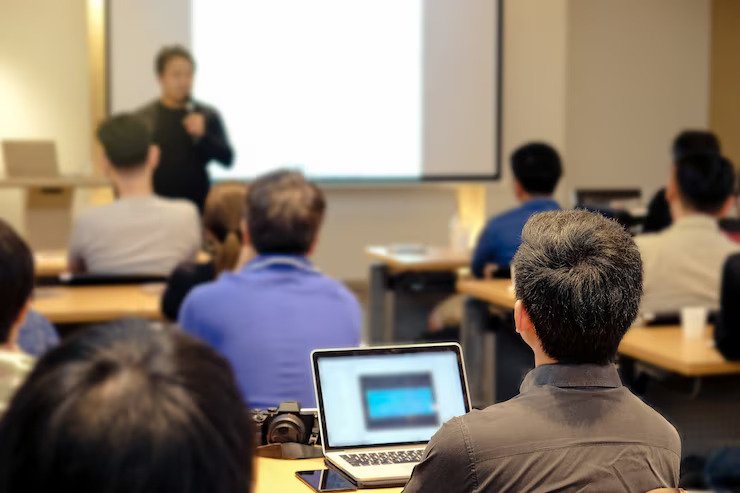Inclusion Revolution: Unveiling The Impact Of DEI Training In The Workplace
by Arnab Dey Business Development Published on: 12 May 2023 Last Updated on: 07 November 2024

In an ever-evolving world, diversity, equity, and inclusion (DEI) have become crucial considerations for organizations seeking to foster an inclusive and equitable environment.
Recognizing the value of diverse perspectives and experiences, companies are turning to DEI training to create a culture that celebrates differences, promotes fairness, and unlocks the full potential of their workforce. In this article, we delve into the transformative power of DEI training, exploring its benefits, key components, and strategies for successful implementation.
Get ready to embark on a journey that champions unity, amplifies voices, and propels organizations toward a brighter and more inclusive future.
Building Awareness: Unveiling Unconscious Bias
DEI training begins by fostering awareness of unconscious bias—a fundamental aspect of human behavior. Participants are guided to recognize and challenge their implicit biases, exploring how these biases can influence perceptions, decisions, and interactions in the workplace.
By understanding the existence of biases, individuals can adopt more inclusive mindsets, facilitating equitable practices and fostering a culture of respect and understanding.
Cultivating Empathy and Cultural Competence

Empathy and cultural competence are essential components of DEI training. Participants are encouraged to develop a deep understanding of different cultures, backgrounds, and perspectives. Through interactive exercises and open dialogue, individuals gain insights into the experiences of others, building empathy and fostering a sense of belonging.
Cultural competence equips employees with the tools to navigate diverse interactions, embrace differences, and create an inclusive environment that values and respects all individuals.
Addressing Microaggressions and Unconscious Exclusion
Microaggressions and unconscious exclusion can perpetuate bias and hinder inclusivity. DEI training provides a platform to address these issues head-on. Participants learn to identify microaggressions—subtle, often unintentional, acts that marginalize or demean individuals based on their identities. By understanding the impact of these behaviors, individuals can cultivate a more inclusive environment, where everyone feels valued, heard, and respected.
Promoting Allyship and Advocacy
DEI training encourages participants to become active allies and advocates for marginalized groups. Allies play a crucial role in supporting and amplifying the voices of underrepresented individuals.
Training sessions provide practical strategies for allyship, including interrupting bias, leveraging privilege, and creating opportunities for equitable representation. By empowering individuals to become allies and advocates, organizations can foster a collective commitment to creating positive change and dismantling systemic barriers.
Developing Inclusive Leadership
Leadership plays a pivotal role in driving DEI initiatives. DEI training equips leaders with the skills necessary to champion inclusivity within their teams and organizations. Leaders learn to promote open communication, establish inclusive policies and practices, and create a culture of accountability. By fostering inclusive leadership, organizations set the tone for a diverse and equitable workplace, where every individual can thrive and contribute their unique talents.
Implementing Structural Changes

DEI training goes beyond individual awareness; it prompts organizations to examine and transform their structures, policies, and practices. Training programs guide companies to assess their recruitment, hiring, and promotion processes through an equity lens.
By identifying and addressing systemic barriers, organizations can ensure fair and inclusive opportunities for all employees. Structural changes may also involve creating affinity groups, establishing mentorship programs, and implementing inclusive language guidelines. These initiatives demonstrate an organization’s commitment to DEI and create an environment where individuals can bring their whole selves to work.
Measuring Progress and Accountability
Evaluation and measurement are vital components of effective DEI training. Organizations must establish benchmarks and metrics to gauge progress and track the impact of training initiatives. Surveys, focus groups, and diversity data analysis can provide insights into the experiences of employees and monitor the effectiveness of DEI training programs. By regularly assessing and analyzing data, organizations can make informed decisions, identify areas for improvement, and hold themselves accountable to their DEI goals.
Nurturing a Culture of Ongoing Learning and Development
DEI training is not a one-time event but rather a continuous journey. Organizations must foster a culture of ongoing learning and development to sustain the progress achieved through training programs. This can involve providing resources, workshops, and discussions that explore evolving DEI topics and trends. By encouraging continuous education, organizations empower employees to stay informed, challenge biases, and actively contribute to a more inclusive workplace.
Overcoming Challenges and Embracing Resilience
Implementing DEI training may encounter challenges along the way. Resistance to change, discomfort with confronting biases, and the need for cultural shifts can pose obstacles. However, organizations committed to creating inclusive environments must embrace resilience and persevere. By fostering open dialogue, providing support systems, and addressing concerns, organizations can navigate challenges and continue advancing their DEI initiatives.
The Transformative Impact of DEI Training

DEI training holds the power to transform organizations and societies. When organizations invest in creating inclusive cultures, they reap numerous benefits. Diverse teams are more innovative, creative, and adaptable to change. Inclusive workplaces foster employee engagement, loyalty, and retention.
By leveraging the strengths and perspectives of a diverse workforce, organizations gain a competitive edge in the global marketplace. Moreover, DEI training is not solely about compliance; it is about cultivating environments where individuals feel valued, empowered, and able to reach their full potential.
Conclusion
Diversity equity and inclusion training serve as catalysts for change, enabling organizations to build inclusive cultures that embrace diversity and empower all individuals. By addressing unconscious bias, cultivating empathy, and promoting allyship, DEI training transforms mindsets and behaviors. Through structural changes, inclusive leadership, and ongoing learning, organizations create environments where individuals feel seen, heard, and valued.
As we navigate an increasingly interconnected and diverse world, organizations that prioritize DEI training position themselves for success. By fostering a culture of inclusivity, organizations unlock the full potential of their workforce, driving innovation, collaboration, and long-term growth.
By embracing unity and empowering voices, organizations can create a future where diversity is celebrated, equity is upheld, and inclusion is the foundation of success.
Read Also:



































































































